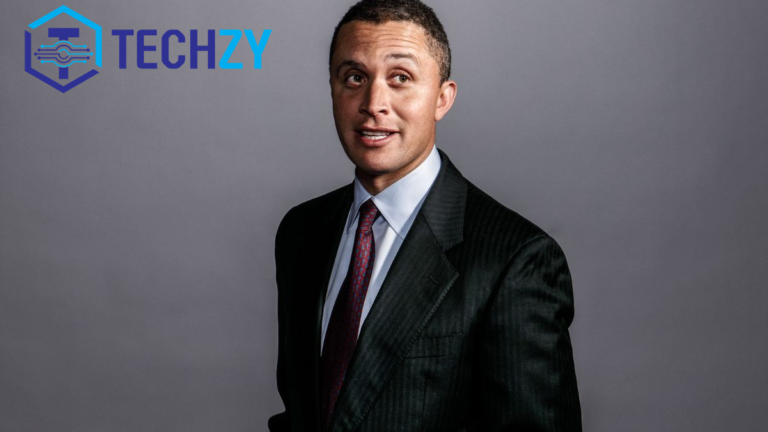Harold Ford Jr. is a name that resonates in the realms of American politics, business, and media. As a former U.S. Congressman, political commentator, and successful businessman, Ford has built a multifaceted career that has significantly contributed to his net worth. In this article, we will delve into the various aspects of Harold Ford Jr.’s life, career, and financial standing, providing a detailed analysis of his net worth, sources of income, and the factors that have shaped his financial success.
Early Life and Education
Childhood and Family Background

Harold Ford Jr. was born on May 11, 1970, in Memphis, Tennessee, into a prominent political family. His father, Harold Ford Sr., was a long-serving U.S. Congressman, and his mother, Dorothy Bowles Ford, was a homemaker. Growing up in a politically active household, Ford was exposed to the intricacies of politics from a young age, which undoubtedly influenced his career trajectory.
Education and Academic Achievements
Ford attended St. Albans School in Washington, D.C., a prestigious preparatory school known for its rigorous academic curriculum. He later pursued higher education at the University of Pennsylvania, where he earned a Bachelor of Arts degree in American History. Ford continued his education at the University of Michigan Law School, where he obtained his Juris Doctor (J.D.) degree. His academic achievements laid a strong foundation for his future endeavors in law, politics, and business.
Political Career
Early Political Involvement
Harold Ford Jr.’s political career began at a young age, influenced by his father’s legacy in Congress. He worked on his father’s campaigns and gained valuable experience in grassroots organizing, public speaking, and policy analysis. This early exposure to politics prepared him for his own political journey.
Election to the U.S. House of Representatives
In 1996, at the age of 26, Harold Ford Jr. was elected to the U.S. House of Representatives, representing Tennessee’s 9th congressional district. He succeeded his father, who had held the seat for over two decades. Ford’s election marked the beginning of a successful political career, during which he served five terms in Congress.
Legislative Achievements and Policy Focus
During his tenure in Congress, Ford focused on a wide range of issues, including education reform, healthcare, and economic development. He was known for his moderate stance and ability to work across party lines, earning him respect from both Democrats and Republicans. Ford’s legislative achievements included advocating for increased funding for historically black colleges and universities (HBCUs) and supporting policies to improve access to affordable healthcare.
Senate Campaign and Political Transition
In 2006, Harold Ford Jr. ran for the U.S. Senate, seeking to represent Tennessee. Although he narrowly lost the election, his campaign was notable for its high-profile nature and the significant financial resources it attracted. Following his Senate bid, Ford transitioned from elected office to other pursuits, including business and media.
Business Ventures and Financial Success
Transition to the Private Sector
After leaving Congress, Harold Ford Jr. shifted his focus to the private sector, where he leveraged his political experience and network to build a successful career in business. He joined Merrill Lynch as a Vice Chairman and Senior Policy Advisor, where he played a key role in the firm’s public policy and business development efforts.
Investment Banking and Financial Services
Ford’s role at Merrill Lynch provided him with valuable experience in the financial services industry. He later joined Morgan Stanley as a Managing Director, further solidifying his reputation as a savvy businessman. His work in investment banking and financial services contributed significantly to his net worth, as he earned substantial income through salaries, bonuses, and stock options.
Board Memberships and Corporate Roles
In addition to his roles at Merrill Lynch and Morgan Stanley, Harold Ford Jr. has served on the boards of several prominent companies, including Ford Motor Company and Bank of America. These board memberships not only enhanced his professional profile but also provided him with additional sources of income through director fees and stock compensation.
Media Career and Political Commentary
Harold Ford Jr. has also made a name for himself in the media industry. He has worked as a political commentator for various news outlets, including MSNBC and NBC News. His media career has allowed him to share his insights on politics and policy while earning income through television appearances and commentary.
Harold Ford Jr. Net Worth: An Overview
Estimating Harold Ford Jr.’s Net Worth
As of 2023, Harold Ford Jr.’s net worth is estimated to be in the range of 10millionto10millionto15 million. This estimate takes into account his earnings from his political career, business ventures, board memberships, and media work. While exact figures are not publicly available, it is clear that Ford has accumulated significant wealth through his diverse career.
Sources of Income

Political Career: Ford’s tenure in Congress provided him with a steady income, including his congressional salary and benefits. Additionally, his Senate campaign attracted substantial fundraising, further contributing to his financial standing.
Business Ventures: Ford’s roles at Merrill Lynch and Morgan Stanley were highly lucrative, with salaries and bonuses that significantly boosted his net worth. His work in investment banking and financial services remains a major source of his wealth.
Board Memberships: Serving on the boards of major corporations has provided Ford with additional income through director fees and stock options. These roles have also enhanced his professional network and opened up new opportunities.
Media Career: Ford’s work as a political commentator has added to his income, with earnings from television appearances, speaking engagements, and other media-related activities.
Investments and Assets
In addition to his income from various professional endeavors, Harold Ford Jr. has made strategic investments that have contributed to his net worth. While specific details about his investments are not publicly available, it is likely that he has diversified his portfolio to include stocks, real estate, and other assets.
Factors Contributing to Financial Success
Political Acumen and Networking
Harold Ford Jr.’s success in both politics and business can be attributed to his political acumen and extensive network. His ability to navigate the complexities of politics and build relationships with key stakeholders has been instrumental in his career advancement and financial success.
Education and Professional Background
Ford’s strong educational background and professional experience have played a crucial role in his ability to transition from politics to business. His degrees from the University of Pennsylvania and the University of Michigan Law School provided him with the knowledge and skills needed to excel in various fields.
Diversification of Income Streams
One of the key factors contributing to Harold Ford Jr.’s net worth is his diversification of income streams. By engaging in politics, business, and media, Ford has been able to build a robust financial portfolio that is not reliant on a single source of income.
Strategic Career Moves
Ford’s strategic career moves, including his transition from politics to business and media, have allowed him to capitalize on new opportunities and maximize his earning potential. His ability to adapt to changing circumstances and seize new opportunities has been a hallmark of his career.
Conclusion
Harold Ford Jr.’s net worth is a reflection of his successful and diverse career in politics, business, and media. From his early days in Congress to his roles in investment banking and corporate boards, Ford has demonstrated a remarkable ability to navigate different industries and build a substantial financial portfolio. His strategic career moves, political acumen, and diversification of income streams have all contributed to his estimated net worth of 10millionto10millionto15 million.
As Harold Ford Jr. continues to engage in various professional endeavors, it is likely that his net worth will continue to grow. His story serves as an inspiring example of how a combination of education, networking, and strategic career choices can lead to significant financial success.
FAQs
What is Harold Ford Jr.’s net worth?
As of 2023, Harold Ford Jr.’s net worth is estimated to be between 10millionand10millionand15 million.
How did Harold Ford Jr. make his money?
Harold Ford Jr. made his money through a combination of his political career, business ventures, board memberships, and media work. His roles at Merrill Lynch and Morgan Stanley, as well as his work as a political commentator, have been significant sources of income.
What is Harold Ford Jr.’s educational background?
Harold Ford Jr. holds a Bachelor of Arts degree in American History from the University of Pennsylvania and a Juris Doctor (J.D.) degree from the University of Michigan Law School.
What companies has Harold Ford Jr. served on the board of?
Harold Ford Jr. has served on the boards of several prominent companies, including Ford Motor Company and Bank of America.
What is Harold Ford Jr.’s role in the media?
Harold Ford Jr. has worked as a political commentator for various news outlets, including MSNBC and NBC News. He provides insights on politics and policy through television appearances and commentary.


